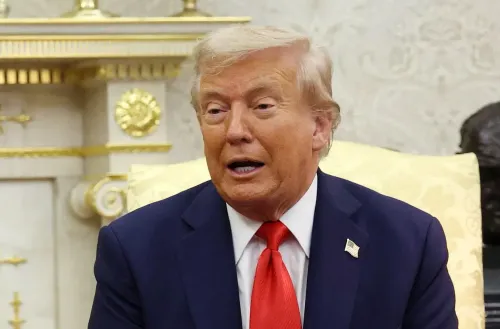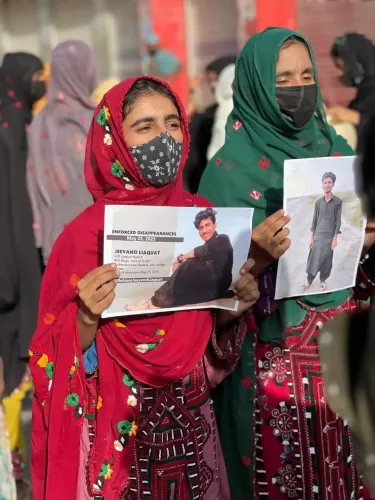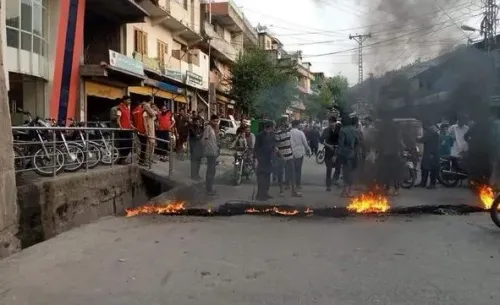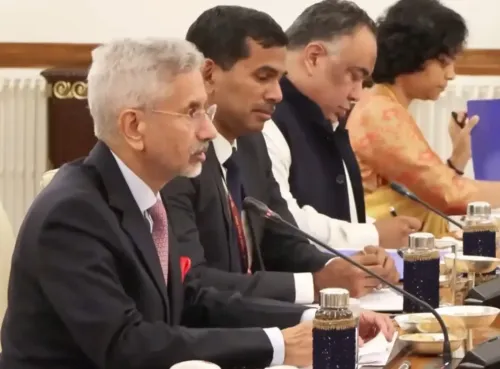Why are European countries calling for restraint amid escalating conflict in the Mideast?
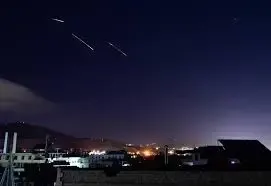
Synopsis
Key Takeaways
- European leaders are advocating for restraint amidst rising tensions.
- Concerns include potential regional warfare and its implications.
- Calls for diplomacy reflect a unified stance from multiple nations.
- Recent military actions have escalated the conflict significantly.
- International law must be respected to avoid further escalation.
Brussels, June 24 (NationPress) European leaders are expressing significant concern regarding the rising tensions in the Middle East, triggered by a sequence of military actions that have heightened worries about a potential broader conflict in the region.
The Prime Minister of Croatia, Andrej Plenkovic, stated in a recent announcement that his government is "carefully observing the situation with considerable apprehension," particularly regarding the direct clashes between Israel and Iran, according to Xinhua news agency.
He cautioned that further intensification could have various repercussions, such as escalating energy prices, increased migration, and the potential for terrorist threats.
"Our stance is unequivocal: escalation must be avoided," the statement emphasized. "The Croatian government urges for restraint, a reduction in tensions, and de-escalation of the conflict."
Serbian President Aleksandar Vucic also criticized the recent military actions taken by the United States in the area, labeling the attack on Iran as a breach of international law.
"There is no question that the United States has transgressed international public law," Vucic remarked during a press conference held after a meeting with the General Staff.
He drew comparisons to the 1999 NATO bombing of Yugoslavia, stressing the necessity of adhering to the UN Charter and international principles. Vucic also expressed regret over the lost opportunity for diplomacy between Iran and Israel.
In Italy, Prime Minister Giorgia Meloni spoke to the lower house of parliament ahead of the upcoming European Union Council meeting, calling for renewed diplomatic efforts.
"Only a unified diplomatic approach can secure peace in the region," she stated, following the US strike on three Iranian nuclear facilities.
Portuguese President Marcelo Rebelo de Sousa made a plea on Sunday for "restraint and the immediate reinstatement of diplomatic initiatives," asserting that diplomacy remains the sole feasible avenue to resolve the conflict.
He reaffirmed Portugal's support for the United Nations and the European Union in promoting de-escalation and preventing further military action.
Portuguese Prime Minister Luis Montenegro echoed these thoughts on social media, advocating for "maximum restraint from all parties and a return to negotiations."
Meanwhile, the Portuguese Communist Party (PCP) condemned the US airstrikes in strong terms, labeling them a "clear infringement" of the UN Charter and international law. The party contended that the attack illustrates a broader strategy for global dominance by the United States and its allies.
On June 13, Israel executed a series of extensive airstrikes targeting Iranian nuclear and military installations, resulting in the deaths of several high-ranking commanders and nuclear scientists. In retaliation, Iran launched missile and drone strikes on Israeli territory.
US President Donald Trump mentioned on Saturday that the United States had conducted strikes on three nuclear-related sites in Iran: Fordow, Natanz, and Esfahan.
In retaliation, Iran initiated a missile assault on the US Al Udeid Air Base in Qatar on Monday evening.

